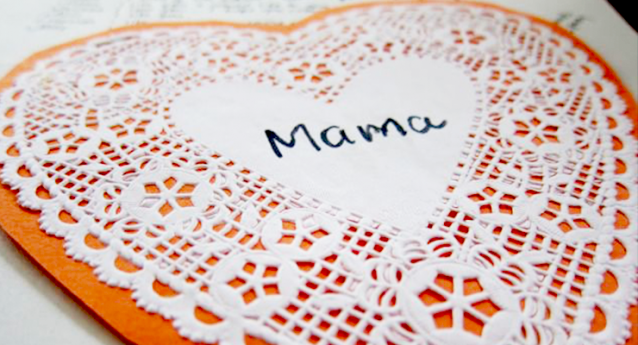From collaboration with an Appalachian women’s shelter to working with Liberian refugee artists in Philadelphia, Roadside Theater and its collaborators use cultural expression to address domestic violence.
I remember the Valentine’s Days of my childhood, when our elementary school teachers cancelled math lessons and passed out red and white construction paper, scissors, and glue so we could make Valentine cards for our mothers. When my brother and I presented our cards to Mom, she would give us a big Valentine hug, and display our cards prominently in the living room for our father to admire when he returned from work with a small paper bag of tiny red cinnamon hearts for “all his Valentines.”
In 1965, when I was sixteen, I worked the summer breakfast shift as a waitress at my Uncle’s diner. One day, the nineteen-year-old daughter of a co-worker came sobbing into the diner with a black eye and large bruises on her arms. She told her mother that her boyfriend was mad at her because he thought she was flirting with another boy. Her mother told her that this was just part of life, and that he wouldn’t be mad at her for long. I thought that was the craziest thing I’d ever heard, and said as much. My co-worker turned to me with a pitying look and said, “Honey, you’re young. You’ll understand these things when you’re older.”
In 1999-2000, I conducted a year-long Roadside Theater residency with the staff and clients of HOPE House, my local women’s shelter. We worked together through Story Circles to write Voices from the Battlefront, a play that weaves the personal stories of victims and survivors of domestic violence with Appalachian folk stories and murder ballads passed from generation to generation as warning tales. The play’s script is free for the taking on Roadside’s website, and has been performed around the country as part of domestic violence workshops.
Listening to the stories of abused women and children for a year was definitely an eye-opener, but not in the way my former diner co-worker imagined. She was right about her daughter’s boyfriend not being mad at her for long. I heard many tales about extravagant romantic acts with flowers, jewelry, and chocolates delivered lovingly by an abuser to the abused the day after a horrible beating. Forgiveness by the victim was almost always the result. The connection to our commercialized idea of romantic Valentine’s Day gestures didn’t escape me.
According to the National Coalition Against Domestic Violence, in the U.S. 85% of domestic violence victims are women; one in every four women will experience domestic violence in her lifetime; females 20-24 years of age are at the greatest risk of nonfatal intimate partner violence; and most cases of domestic violence are never reported to the police. These are just the U.S. statistics.
Globally, one in three women will experience physical and/or sexual violence by a partner or sexual violence by a non-partner. This statistic, from the World Health Organization, doesn’t take into account bride burning, acid throwing, or genocidal rape campaigns carried out as acts of war.
In 2013 Roadside began working with the Philadelphia Folklore Project and a group of Liberian refugee artists who have now joined together to create drama and music that names and laments the injustice of domestic violence, encourages women to make their voices heard, and provides ways to get help. They are the “Liberian Women’s Chorus for Change,” and they are producing “pop-up” performances wherever their Liberian community gathers – most recently at Faith Emmanuel Lutheran Church.
Watch "Chorus for Change" speak for itself:
Chorus members describe their work – “We want our families and community members to have access to information and resources that will allow them the chance to flourish with dignity, in their adopted home.” Toni Shapiro-Phim of the Philadelphia Folklore Project, the organization coordinating the Liberian Women’s Chorus for Change, says, “Stories evoked publicly through song and drama are the starting point for conversations that can lead to imaginative and realistic paths to addressing pressing concerns.”
“One Billion Rising,” an online organizing site, is a global call to women survivors of violence and those who love them to gather safely this February 14th outside places where they are entitled to justice – courts, police stations, government offices, colleges, work places – to tell their stories through art, ritual, marches, and other peaceful means. On February 14, the Liberian Women’s Chorus for Change was scheduled to be part of the Philadelphia celebration of “One Billion Rising at Love Park,” which was canceled because of a winter storm. The Chorus, and others in Philadelphia, will now join a social media campaign addressing violence against women and girls.
Some things have changed since I was a sixteen-year-old waitress. More of us have learned about the cycle of abuse and what happens to the children who witness it, but the statistics still scream we have a long way to go. The expressions inherent in our cultures – story, music, dance, ritual – can help us get to the real meaning of little red hearts.
